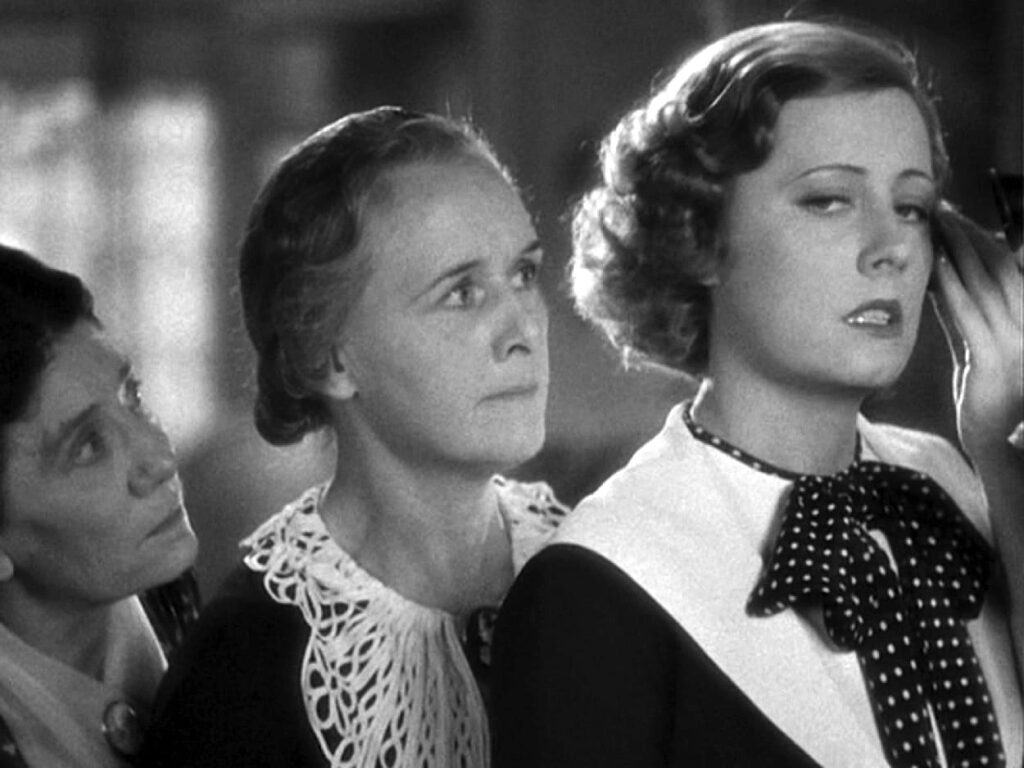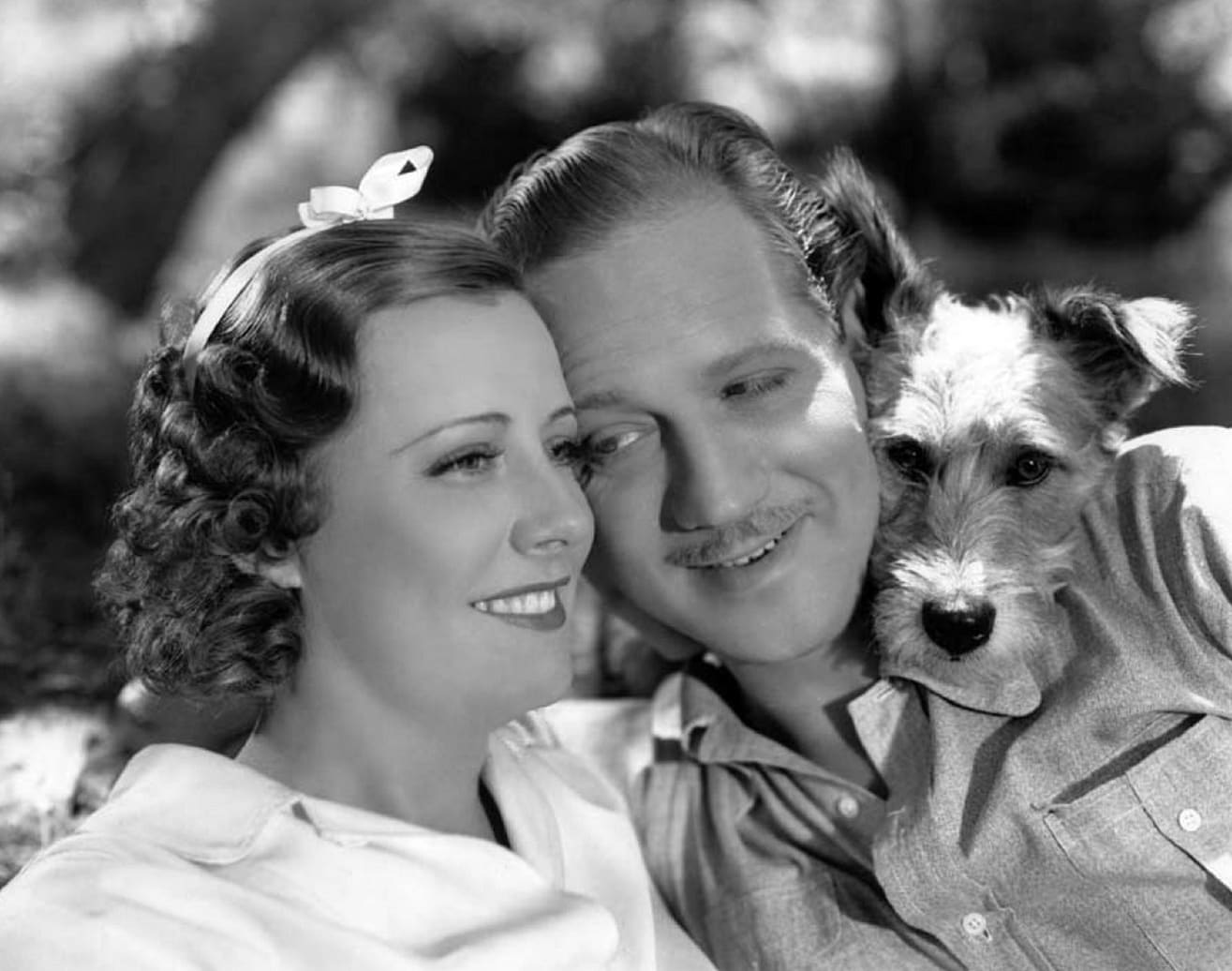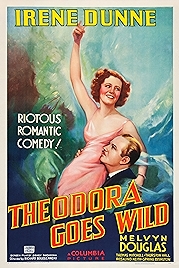Almost a commentary on Hollywood’s transition from Pre-Code licence to Post-Code moralising, 1936’s Theodora Goes Wild is a breezy screwball comedy that straddles the decades with its opposition of conservative smalltown standards and liberal big-city values.
Irene Dunne is the go-between, playing Theodora Lynn, a compliant daughter of the founding family of the small burgh of Lynnfield, but secretly also Caroline Adams, author of a work of racy fiction currently scandalising her staid puritanical aunts.
Life for Theodora/Caroline continues on this twin track – dutiful mouse at home, sophisticated woman of the world on her visits to the city – until smoothie-chops New York book illustrator Michael Grant (Melvyn Douglas) takes a shine to the charming writer and traces her back to her bolthole and turns up there one day unannounced.
Farcical double-identity comedy is the result, with steady Theodora trying to keep her risqué alter ego a secret from her aunts, even as Michael – out of sheer badness – installs himself at the family home as the new gardener and attempts to goad Theodora into going public.
While dispensing the sort of “be yourself” wisdom that’s now commonplace, he also takes Theodora blackberrying and fishing. Woos her the old fashioned way, in fact, until she falls in love with him. It’s only at this point that she realises Michael himself is in a situation much like hers – a double life, one including a semi-detached wife and a politician father who wants no scandal. And Theodora Goes Wild kicks up a gear.
This is the film that transformed Dunne into one of the big stars of 1930s screwball comedy. She saw herself as a creature of straight drama and didn’t want to do it, but was strongarmed into it by Columbia. It’s fascinating watching her in the film’s early scenes, when she is determinedly not shining. It’s only at around the point that Michael is revealing his true circumstances that Dunne herself appear to fully commit to the role – the lights come on.

As for Melvyn Douglas, it’s his misfortune that Cary Grant exists, because this looks very much like a role for Grant (the fact that Douglas’s character’s surname is Grant is doubly unfortunate) but he makes the best of it and is helped by a sharp script and by the presence of the support players. Elisabeth Risdon and Margaret McWade as Theodora’s prim aunts, plus Spring Byington as the town’s wearisome moral conscience, are all excellent.
The director is Richard Boleslawksi, who is not a name to conjure with when it comes to motion pictures of the era but would have been on the evidence of this film.
But he died a year after this came out, having demonstrated that he has a real eye for an image, knows how to use the boxy Academy format imaginatively and can put together a montage sequence with skill and wit.
As a slight digresion, Boleslawski had worked with Stanislawsky in a previous life as an actor in Russia. Then he came to America and trained Stella Adler, Lee Strasberg and others in the Stanislavsky “system”. It’s via Adler, Strasberg et al that the renamed “method” took over the world of acting. So, without Boleslawski no Clift, Brando, Hoffman or Day Lewis? Discuss.
Adding extra sheen is cinematographer Joseph Walker, of His Girl Friday and It’s a Wonderful Life. He was Frank Capra’s number-one choice, and in the beautifully lit scenes where the two possible lovers go blackberrying and fishing you can see why.
In many respects the film itself sits between pre-Code and post-Code movies, a touch racy but mostly not, slightly mocking New York swells and also smalltown prudes, but only slightly in both cases. It treads the middle way, Theodora’s way. Theodora may go wild, but not too much.
Theodora Goes Wild – Watch it/buy it at Amazon
I am an Amazon affiliate
© Steve Morrissey 2024

